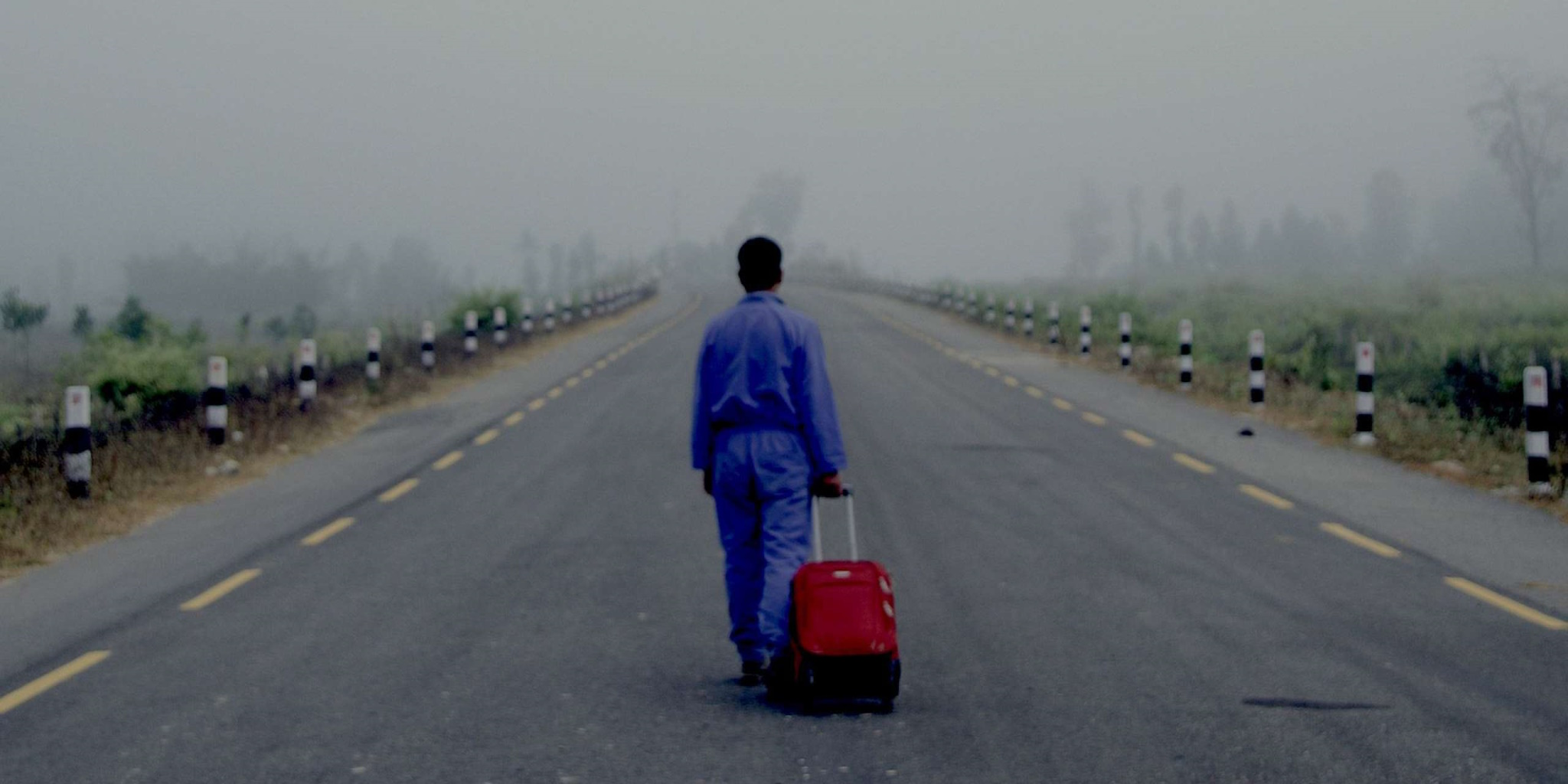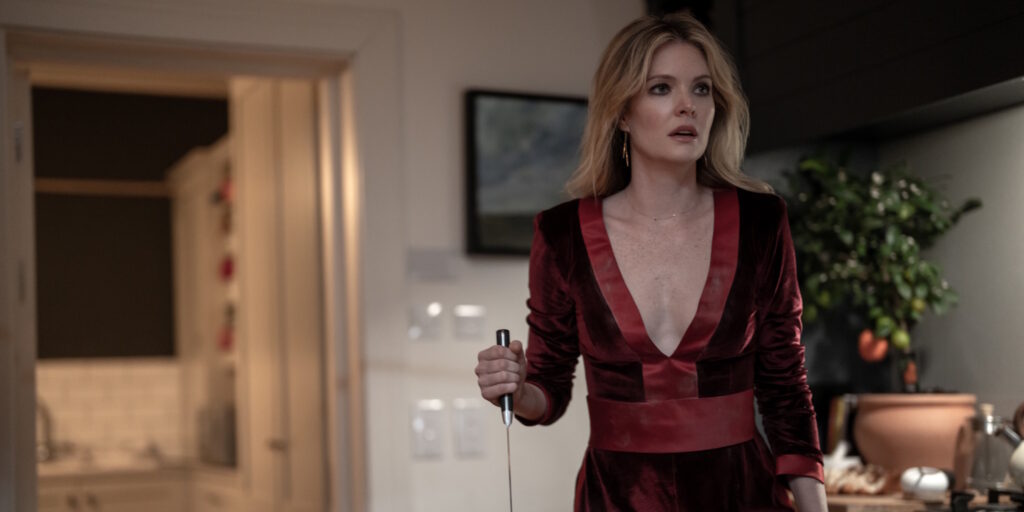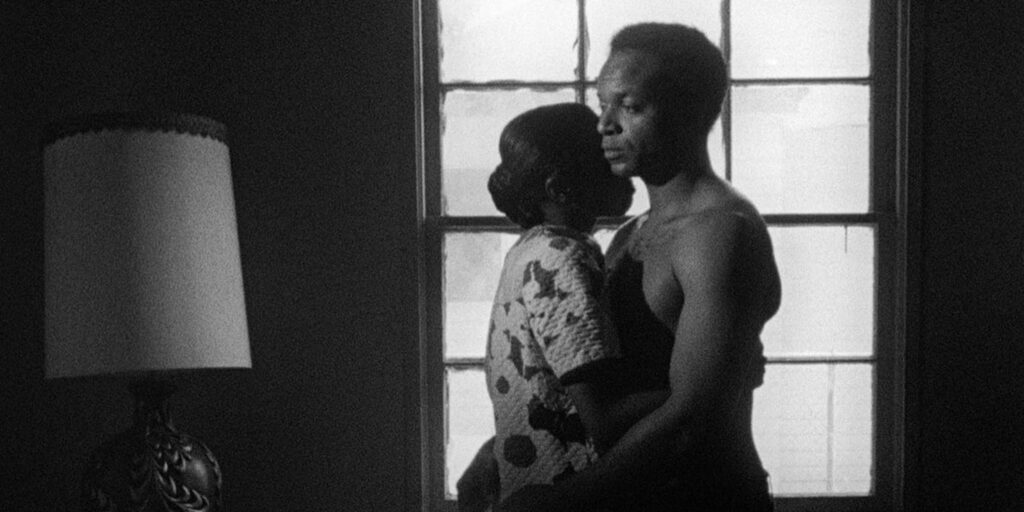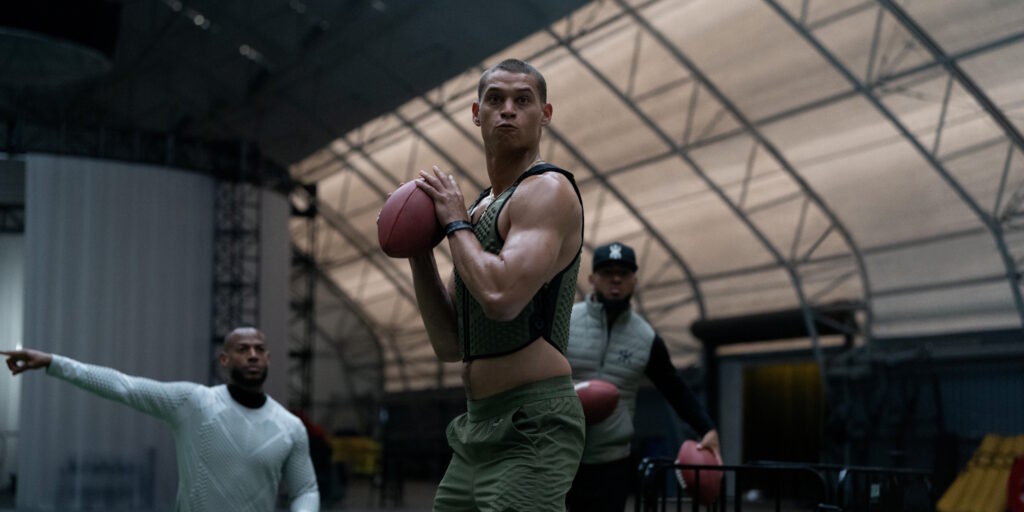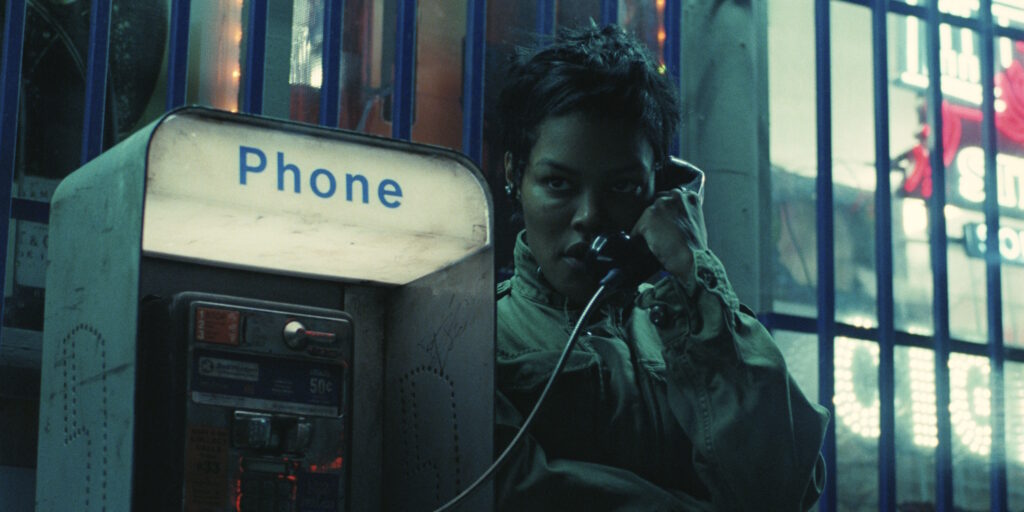Throughout the modern history of the horror movie, one of the most unsettling tropes is that of the silent, slow-moving stalker. Whether you credit it to Night of the Living Dead (1968) and its lumbering zombies or Halloween (1978) and the unhurried gait of the franchise’s iconic killer, it’s something that has seeped into countless genre entries over the decades. Though not ostensibly horror, The Red Suitcase — the narrative-feature debut of Nepali documentarian and anthropologist Fidel Devkota — takes this villain archetype and runs (or, rather, walks) with it to an entirely new place.
A lone truck driver (Saugat Malla) stands outside the Kathmandu Airport, awaiting the arrival of his next delivery. The job? To deliver the contents of the truck — including the titular red suitcase — to a remote village high in Nepalese mountains. It’s expected to take two days (at least), and he’s going at it alone. Meanwhile, another unnamed man (Prabin Khatiwada) — also alone, also hauling a red suitcase, but in his case on foot — makes his way along the center line of the same road … albeit at a much slower pace.
The Red Suitcase alternates between these two journeys, often wordlessly and shot from high, wide-angled perspectives. Not that cinematographer Sushan Prajapati’s bird’s-eye views reveal too much about where these men are or where they’re going: The dense fog that fills the frame only adds more mystery to the already somber, haunting tone of the walker and driver’s parallel treks. Staticky radio broadcasts and garbled PA-system announcements provide some contextualization, but it’s not necessary for the viewer to know exactly what’s being said: These touches function as audible fog, disorientation for the ears.
The cuts from Malla’s drive up winding roads to Khatiwada’s cross-country hike are presented with the disconcerting abruptness of a thriller, as if jumping back and forth from target to killer. It leaves the audience wondering about the relationship between the two nameless leads … and, as they pass the same landmarks, what fate might be waiting at their shared destination. The driver’s detour – stopping for the night outside a tea shop and sharing a drink with the owner (Bipin Karki) – heightens this anxiety, triggering an urge to shout at the screen as the deliveryman tarries while his pedestrian counterpart closes the gap.
Covertly, The Red Suitcase reveals itself to be quite a political film. (Perhaps unsurprising, seeing as writer-director Devkota is an ethnographer very much in tune with the growing socioeconomic uncertainty in Nepal today.) The film’s characters also share a deep, painful connection to the goings-on in the South Asian region. Impressively, Devkota manages to convey this in terms even the unlearned can understand and resonate with emotionally.
“Horror” isn’t the right word to describe The Red Suitcase. Neither is “thriller.” It’s a much more solemn, mournful experience than either genre is conventionally known for. Though that’s not to suggest it’s in line with the string of contemporary A24 horror-style arthouse projects that package loss and grief the way the slashers of old once treated Freddy and Jason. The Red Suitcase is something completely unique, an uncanny magical-realist chiller that greatly rewards those willing to stay the course.
The Red Suitcase screens nightly at 7:00 p.m. on Oct. 17 – 18 and 20 at the Webster University Film Series.
